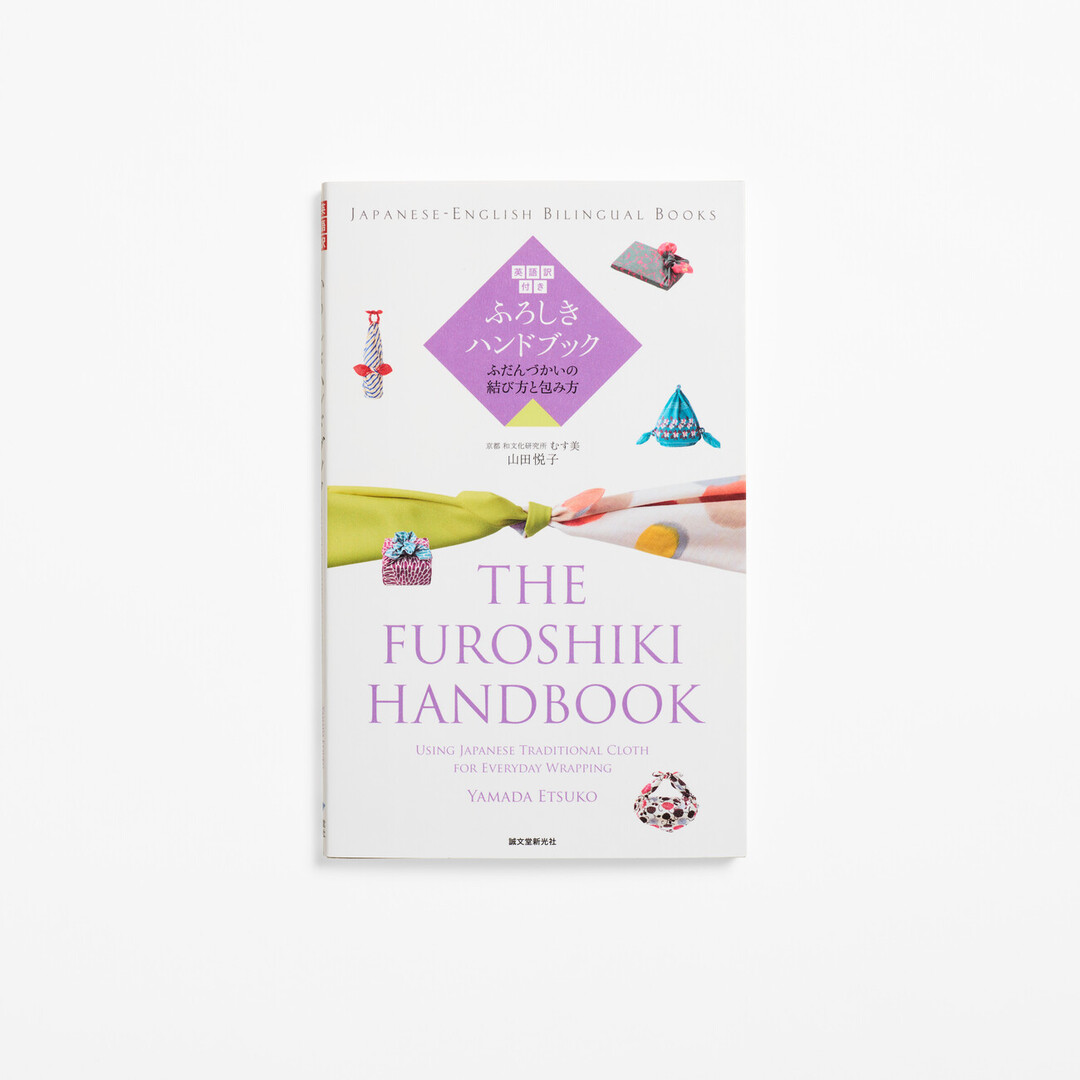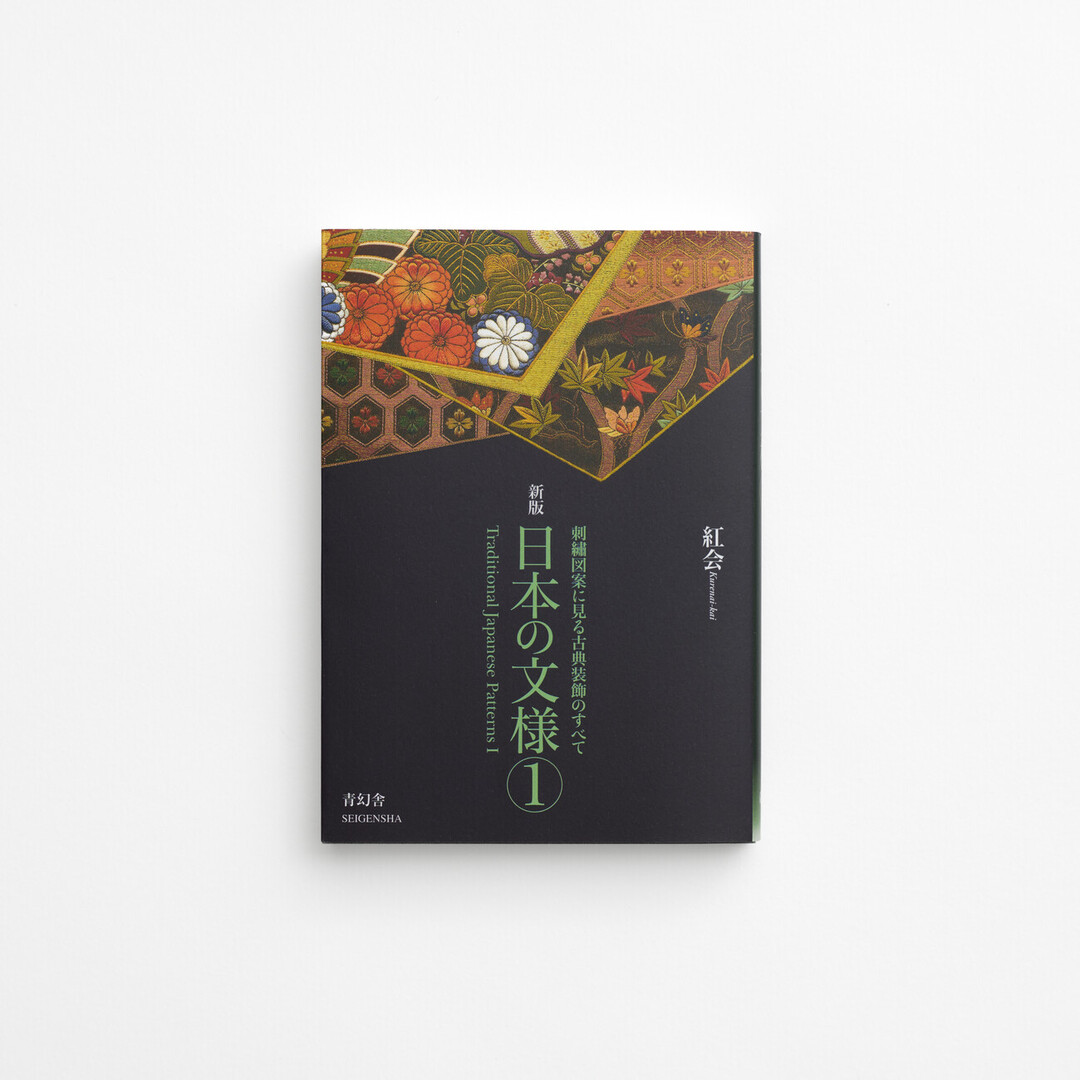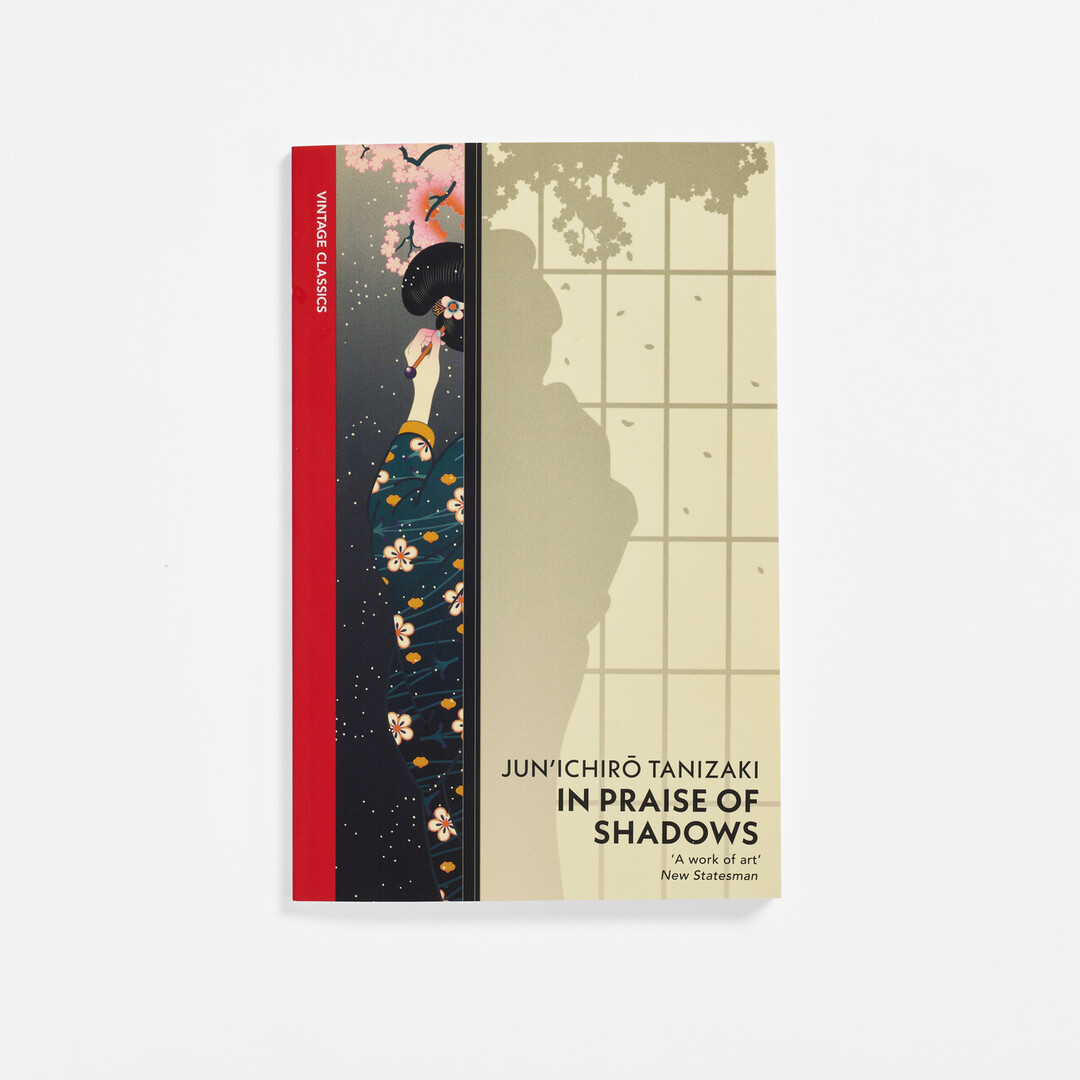
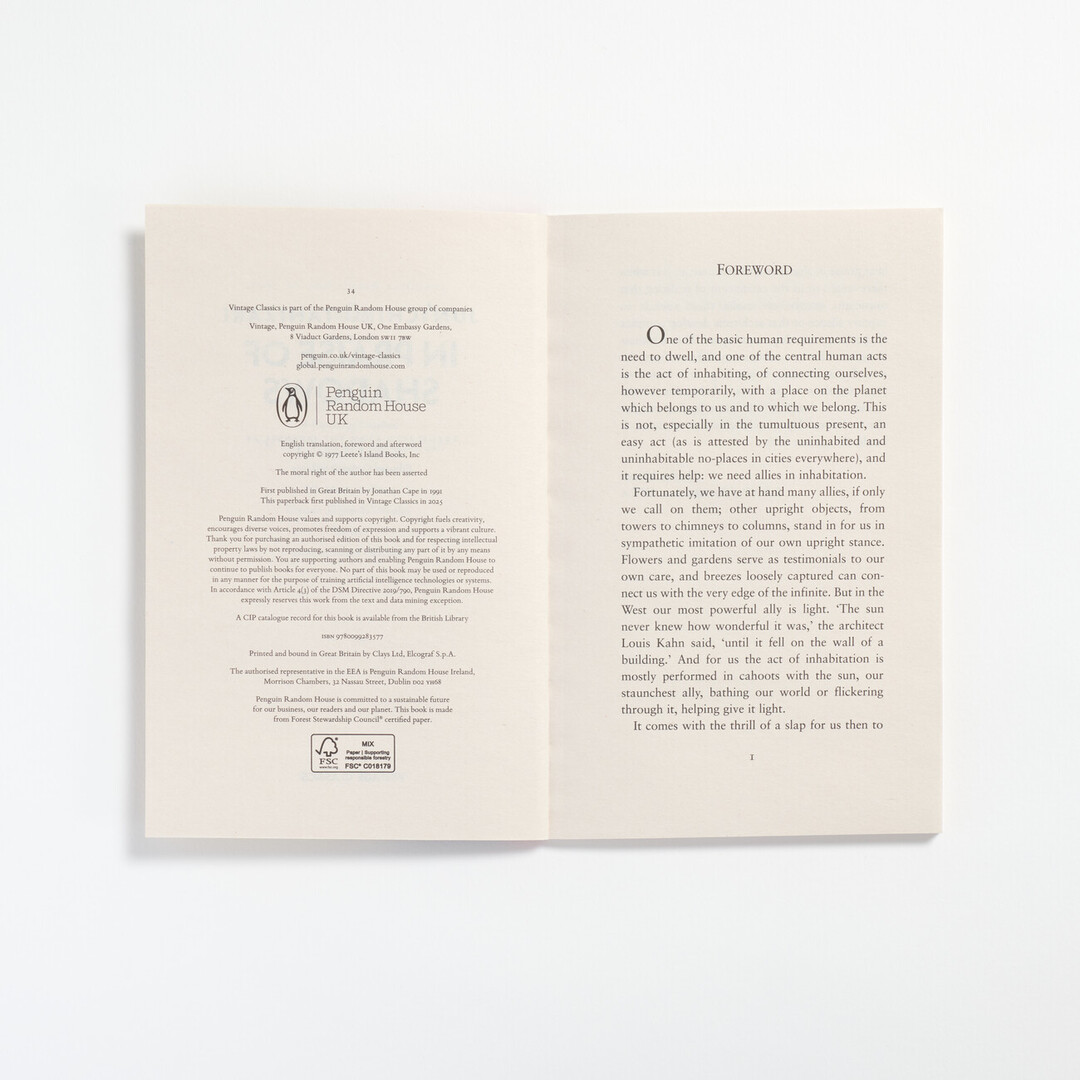
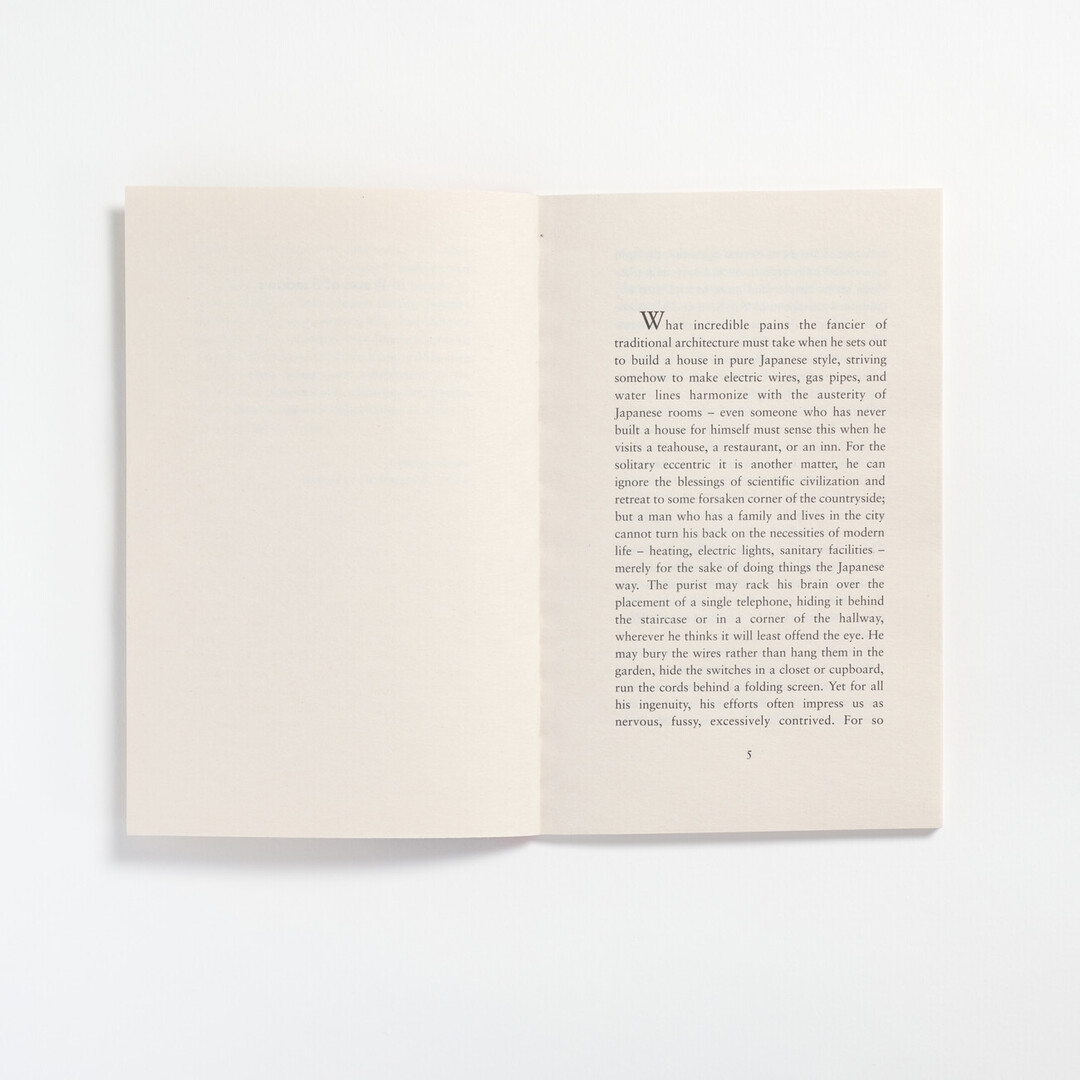
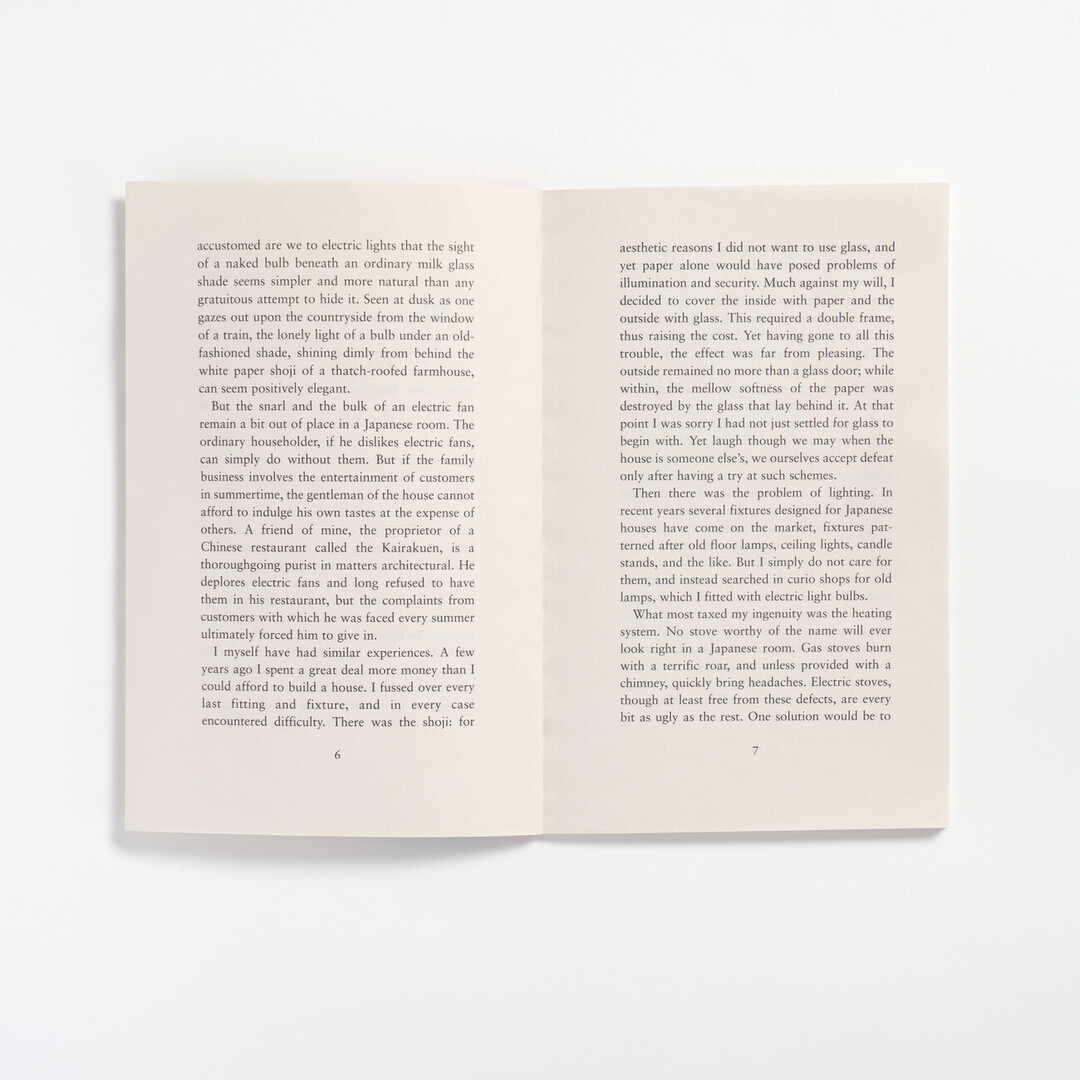
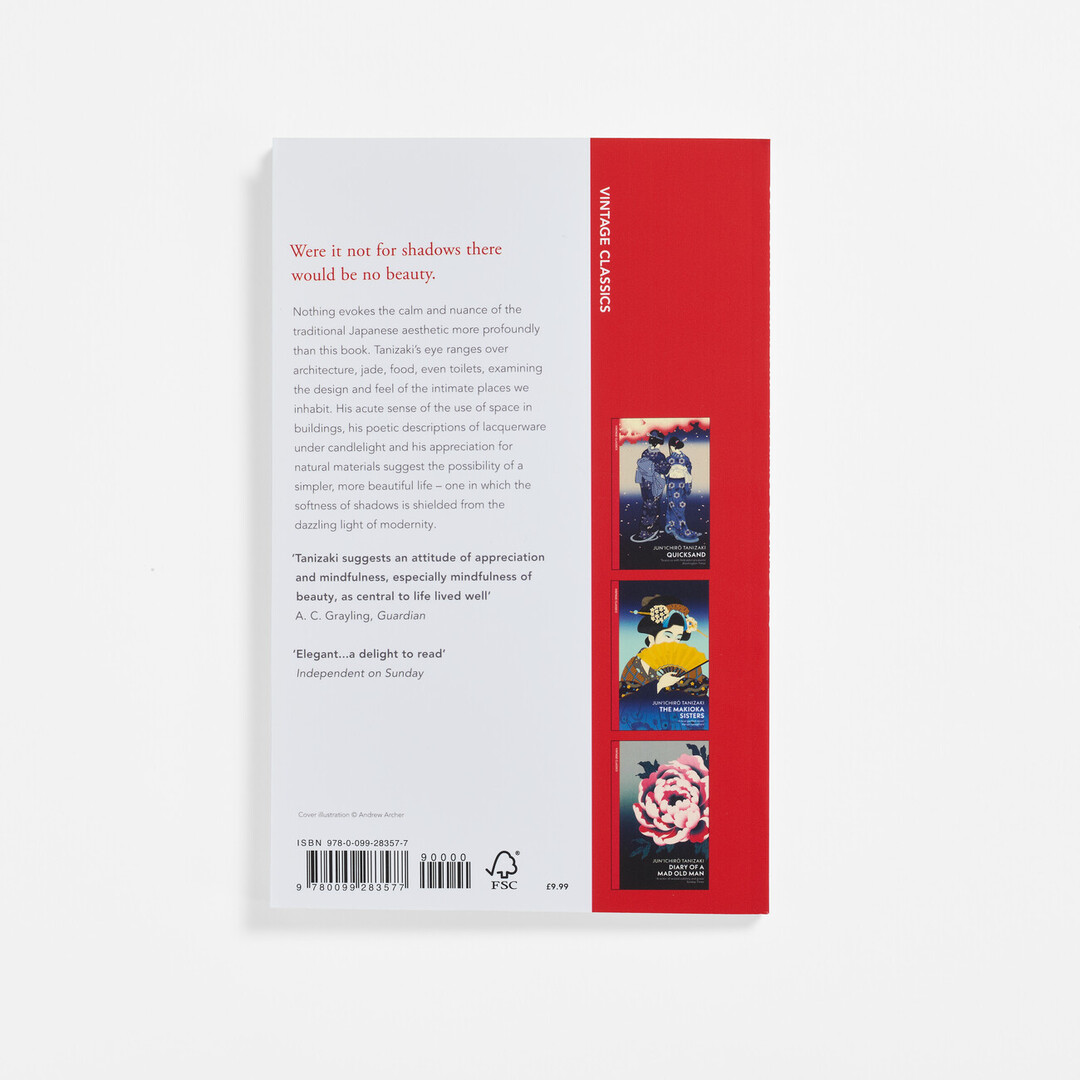
In Praise of Shadows
陰翳礼讃
An essay on time-honoured Japanese aesthetics by novelist Tanizaki Jun’ichirō.
Want to be notified when this product is back in stock?
This book is an essay on time-honoured Japanese aesthetics, written in the context of Japan’s rapid modernization in the 20th century and explored through the themes of light and darkness. Tanizaki Jun’ichirō reflects on a range of subjects, from architecture to Noh theatre. He examines the design and atmosphere of inhabited spaces, including intimate settings such as toilets and ideas of cleanliness. His detailed observations of material surfaces, such as the richness of lacquerware observed under candlelight, convey his appreciation for shadows and offer insight into the depth that darkness and impermanence bring.
Size : 12.45 x 0.64 x 19.79 cm
Discover more
Sign up for exclusive updates
Receive a 10% discount on your first online order and be the first to hear about Japan House London's Shop collections, exhibitions, events, offers and more, direct to your inbox
We respect your privacy and data security. Check our Privacy Policy for more details.
